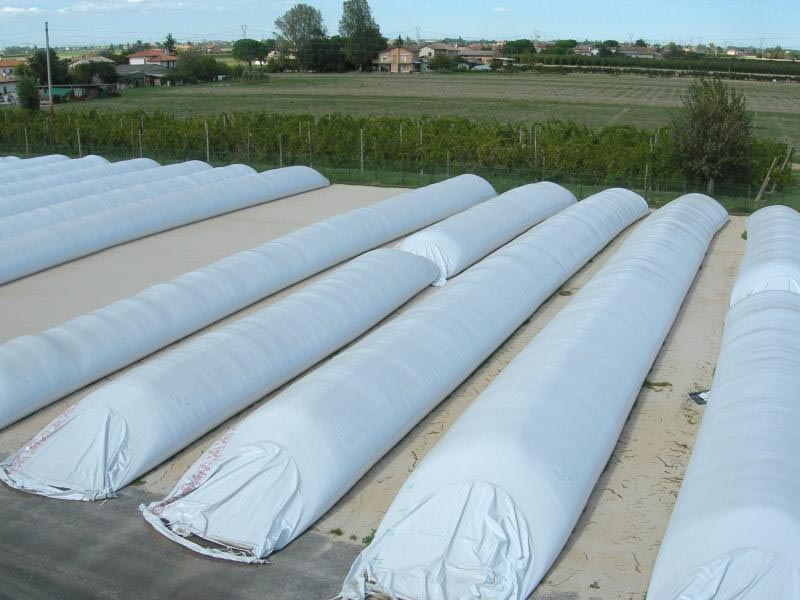Silo Bags Could Help with Inadequate Grain Storage in Brazil

Adequate grain storage is a chronic problem for Brazilian farmers. Grain production has increased faster than farmer’s ability to construct storage facilities, so Brazil is always short on grain storage capacity. The state of Mato Grosso for example is expected to produce approximately 80 million tons of soybeans and corn in 2021/22. The state has 2,211 storage units with a capacity of 38 million tons which is 22.2% of Brazil’s total grain storage capacity, but only 30% of those storage units are on-farm.
The Brazilian government is trying to address this problem with subsidized low interest loans for the construction of additional grain storage. This is a longer-term program though, in the near term, Brazilian farmers are turning to the use of more silo bags to store their grain. The long white plastic bags are becoming a common sight especially in central Brazil where the storage deficit is most acute.
If used correctly, these silo bags can maintain the quality of the grain for 18-24 months. Farmers must be certain not to put high moisture grain in the bags because the bags cannot be aerated. It is recommended that the grain moisture be no more than 14% when it is put into the bags. The bags should be put on compacted soil where water does not stand and away from farm animals. The area around the bags should be kept as clean as possible to not attract rodents.
Silo bags are easier to purchase than steel grain bins and they can be delivered relatively quickly, generally with 10-15 days. In contrast, the construction of metal storage units is a slower process especially in times of supply chain disruptions. Obtaining the raw materials to construct a metal storage unit in Brazil could take up to 200-400 days.
Each 60-meter bag cost approximately $700 and has the capacity to store 6,600 bushels of grain. The maximum size is generally 100-meters which could store approximately 11,000 bushels. The cost of the bag is therefore about US$ 0.10 a bushel not counting the equipment to fill and unload the bags. The equipment cost approximately US$ 45,000 and it should pay for itself in 4-5 years.
These temporary storage bags offer many advantages for the farmers. Without adequate storage, farmers are either forced to sell their grain at harvest when prices are generally at their lowest point or pay for expensive storage at the local grain elevator. The use of these bags allows the farmers to market their grain later when prices may be higher. Some farmers estimate that they received 15% more for their grain just by delaying sales for several months.
Another big advantage of these bags is the savings on transportation costs. Without adequate on-farm storage, farmers must hire trucking companies to transport their grain to the local elevator during the harvest when freight rates are at their highest. With silo bags on site, farmers can avoid high freight costs until after the harvest when freight costs decline. The transportation savings alone may be more than enough to cover the cost of the silo bags.
Read also
Wheat in Southern Brazil Impacted by Dry Weather and Frosts
Oilseed Industry. Leaders and Strategies in the Times of a Great Change
Black Sea & Danube Region: Oilseed and Vegoil Markets Within Ongoing Transfor...
Serbia. The drought will cause extremely high losses for farmers this year
2023/24 Safrinha Corn in Brazil 91% Harvested
Write to us
Our manager will contact you soon



